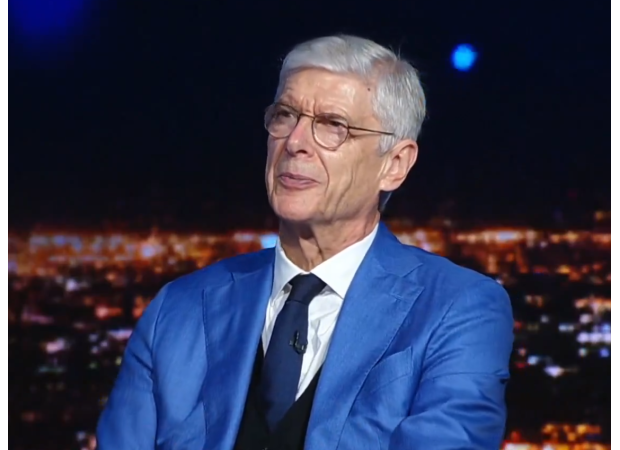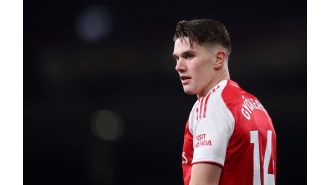Arsene Wenger predicts a difficult future for Arsenal's striker Kai Havertz.
When Le Professeur talks, Arsenal supporters pay attention.

When asked to choose between Harry Kane and Kai Havertz as his preferred centre forward, Arsene Wenger took a moment to consider the strengths and contributions of both players. He praised Havertz for his recent success with Arsenal, but expressed some concern about his potential as a prolific goalscorer.
Initially, Havertz struggled to adapt to the midfield role he was given upon joining the team from Chelsea. However, since Mikel Arteta made the decision to deploy him as a centre forward, the 25-year-old's fortunes have turned around and he has become a key player for the team. In fact, he has been so impressive that it came as a surprise when he passed up the opportunity to score in a recent game against Shakhtar Donetsk, opting instead to let his teammate Leandro Trossard take a penalty kick. Unfortunately, Trossard missed the shot and Arsenal was forced to hang on for a narrow victory.
Wenger believes that Havertz's all-around contribution to the team makes him a valuable player in Arteta's plans. However, he also cautioned that expectations should be tempered when it comes to his goal-scoring abilities. When asked to compare him to Harry Kane, Wenger explained that it ultimately depends on the team's style of play and defensive tactics.
Moving on to other top strikers in the league, Wenger couldn't help but sing praises for Manchester City's Erling Haaland. He noted the young player's exceptional instincts and timing, as well as his ability to score with both feet. Wenger also pointed out that Haaland is still considered a "beginner" in the football world, with many years ahead of him to continue learning and improving.
As the conversation turned to modern strikers in general, Wenger mentioned that they have a longer playing career now compared to previous generations. With players like Haaland able to continue playing until their mid-thirties, they have more time to develop and hone their skills. In Wenger's opinion, this is a major advantage for young players in today's game.
Overall, Wenger's insights on top strikers and their contributions to their respective teams shed light on the ever-changing nature of the game. As new players emerge and established ones continue to evolve, it will be interesting to see how they shape the future of football.
1 Views






